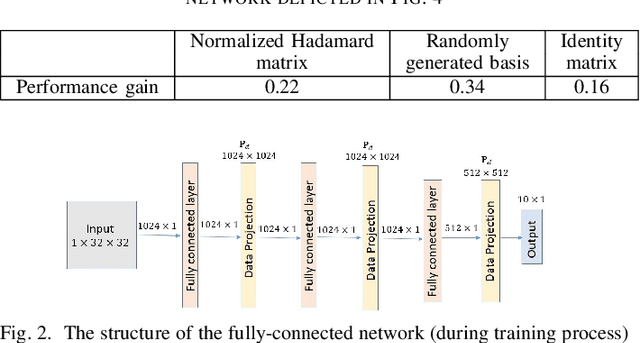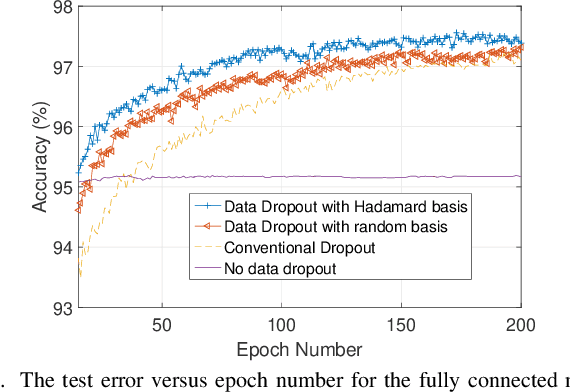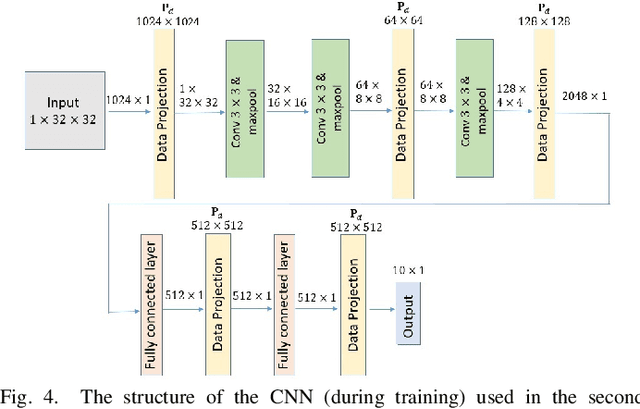Data Dropout in Arbitrary Basis for Deep Network Regularization
Paper and Code
Dec 05, 2017



An important problem in training deep networks with high capacity is to ensure that the trained network works well when presented with new inputs outside the training dataset. Dropout is an effective regularization technique to boost the network generalization in which a random subset of the elements of the given data and the extracted features are set to zero during the training process. In this paper, a new randomized regularization technique in which we withhold a random part of the data without necessarily turning off the neurons/data-elements is proposed. In the proposed method, of which the conventional dropout is shown to be a special case, random data dropout is performed in an arbitrary basis, hence the designation Generalized Dropout. We also present a framework whereby the proposed technique can be applied efficiently to convolutional neural networks. The presented numerical experiments demonstrate that the proposed technique yields notable performance gain. Generalized Dropout provides new insight into the idea of dropout, shows that we can achieve different performance gains by using different bases matrices, and opens up a new research question as of how to choose optimal bases matrices that achieve maximal performance gain.
 Add to Chrome
Add to Chrome Add to Firefox
Add to Firefox Add to Edge
Add to Edge